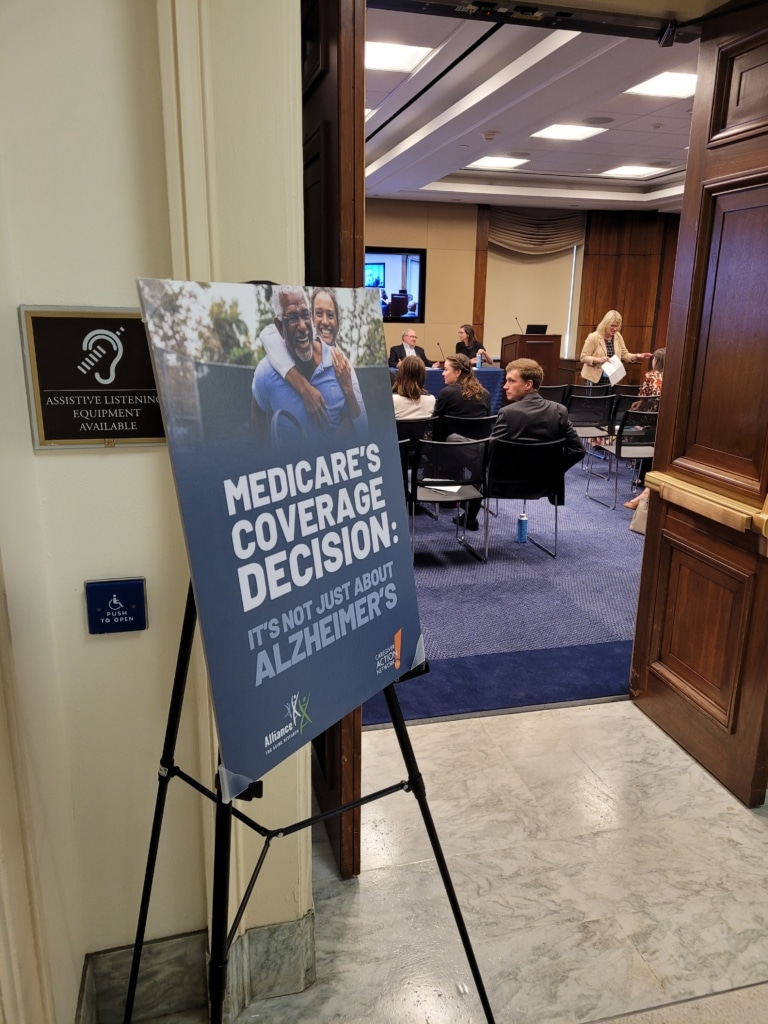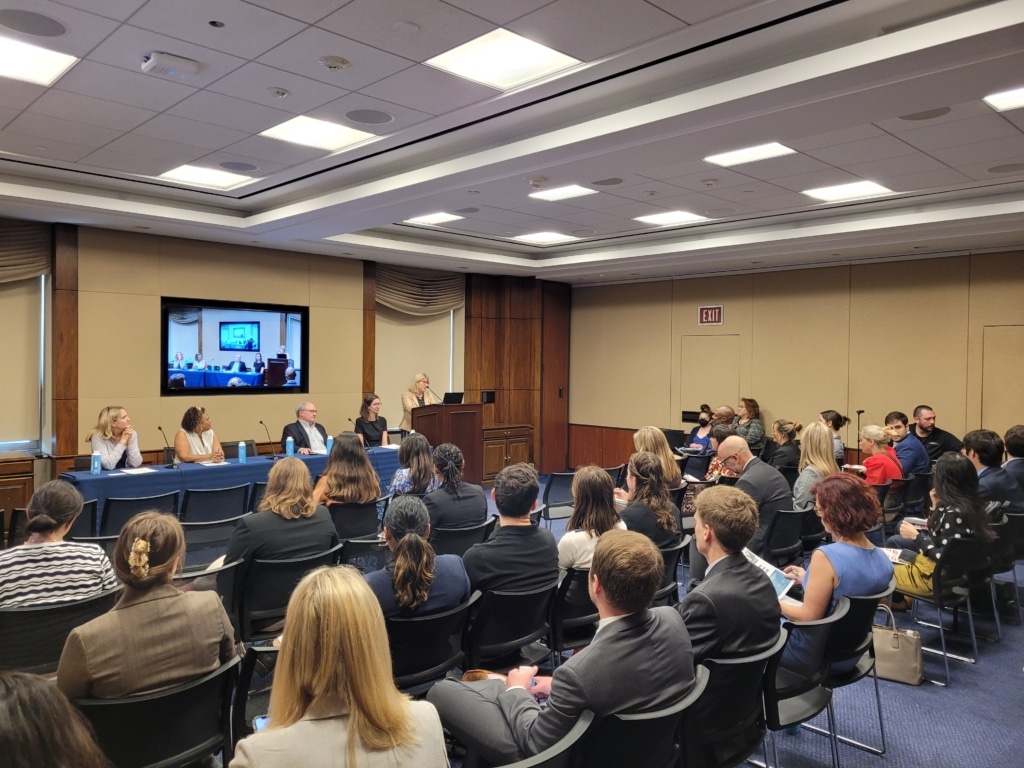Hill Briefing Highlights Need, Voters’ Desire for Access to Newly FDA-approved Treatment to Slow Alzheimer’s
Published July 14, 2023

The Alliance, in partnership with the Caregiver Action Network, hosted an in-person Hill briefing on July 11. The panel discussion for Capitol Hill staff focused on the current state of Medicare coverage for FDA-approved early Alzheimer’s treatments, the inequity impacts on families facing this disease in underserved communities, and the precedent-setting implications of this coverage policy for future breakthrough therapies that aim to tackle other life-threatening diseases. The briefing included compelling polling data of voter support for Medicare coverage and access to new Alzheimer’s therapies.
The briefing was held on the heels of landmark news released on July 7, when the FDA announced the first-ever traditional approval of a disease-modifying therapy for Alzheimer’s disease. The treatment, Leqembi, targets amyloid in people with early Alzheimer’s, and was initially granted Accelerated Approval by the FDA in January after published data showed the therapy slowed progression of early Alzheimer’s by 27 percent over an 18-month trial.
Speakers included:
- Lisa Winstel, Chief Operating Officer of the Caregiver Action Network
- Mary Perkins, caregiver to her husband Wes Perkins, who is living with Alzheimer’s
- Deanna Darlington, Founder of Links2Equity
- Candace DeMatteis, Policy Director for the Partnership to Fight Chronic Disease (PFCD)
- Cate Gormley, Vice President of Lake Research Partners
- Neil Newhouse, Partner and co-founder of Public Opinion Strategies
- Moderated by Sue Peschin, President & CEO of the Alliance for Aging Research
Recent polling indicates that huge majorities want the Centers for Medicare and Medicaid Services (CMS) to cover these treatments. Nearly nine in 10 voters favor requiring Medicare to cover the cost of FDA-approved drugs that can slow the progression of Alzheimer’s disease, according to a May poll conducted by Lake Research Partners and Public Opinion Strategies that was commissioned by the Alliance, the LEAD Coalition, UsAgainstAlzheimer’s, and the Global Alzheimer’s Platform Foundation. A substantial majority of voters also said that Congress or President Biden should step in and require Medicare to cover these medicines if CMS fails to do so.
Family caregiver and advocate, Mary Perkins, cares for her husband, Wes, 81, who has late onset Alzheimer’s and vascular dementia. In her comments, Mary shared how the disease has changed Wes’ ability to participate safely in everyday activities, his demeanor, and his personality, adding that he has experienced hallucinations, delusions, and paranoia:
“[Before his diagnosis] He was the epitome of a social and outgoing person. Everybody knew and recognized Wes Perkins. Now he is quiet, speaks softly, searches for words, and waits for others to speak. What would our lives be at this stage if we had access to a drug that could have slowed the progression? We will never know,” she said. “Knowing now that such a drug is approved is game changing. But unfortunately, approval does not equal affordable or available. If we were still in the early stages and realized that CMS was blocking our access to a drug that had been approved and could keep Wes functioning at a higher level with a better quality of life for any period of time, I can only imagine the anger and frustration that I would be experiencing.”

Perkins added that this FDA approval of an early intervention that slows disease progression is invaluable to every person and family living with this disease and their collective quality of life:
“Time matters and CMS is wrong to deny or delay for so long. Each day that CMS leaves this misguided policy in place, nearly 3,200 older adults will advance from mild Alzheimer’s where they could experience benefit form this drug, to a more advanced stage. We must do better. And going forward CMS must be our partner and not a stumbling block to advancing access to the treatments that will be developed as we struggle to combat this disease.”
Watch the recording of the briefing to hear remarks from all of the above speakers in their entirety.
